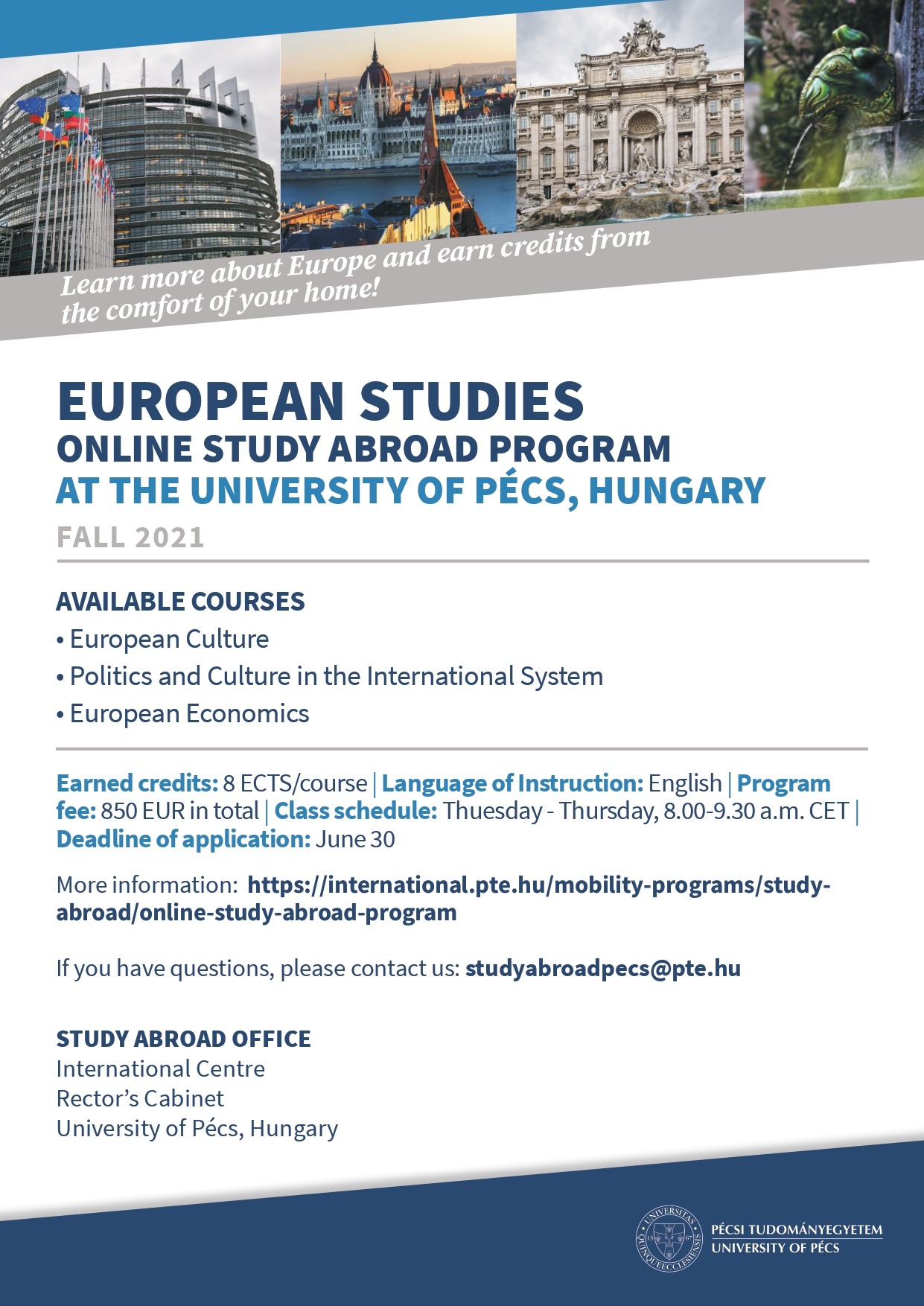Studying abroad can be a life-changing experience.
Online universities offer a solution. They provide quality education to international students without the need to relocate. These institutions deliver flexible learning options to fit different time zones and schedules. Online programs also help students save on travel and accommodation costs.
With a computer and internet access, students can join classes from anywhere in the world. This makes higher education more accessible. Many online universities are now accredited, ensuring a high standard of education. They offer various programs and degrees in fields like business, technology, and healthcare. For international students, this means more opportunities to learn and grow. Explore the world of online universities and find the right fit for your educational journey.
You May Also Like:

Benefits of online Learning
Online universities offer many benefits to international students. One of the most significant advantages is the flexibility and convenience that online learning provides. Additionally, students gain global access to resources that enhance their educational experience. These benefits make online education an attractive option for learners worldwide.
Table of Contents
Flexibility and Convenience
Online learning offers unmatched flexibility and convenience. Students can attend classes from anywhere in the world. This flexibility is especially beneficial for international students who may face time zone differences.
Here are some key points:
- Flexible Schedule: Study at your own pace.
- Convenient Access: Learn from home or any location.
- Balance Work and Study: Manage work and education simultaneously.
Students do not need to relocate or commute, saving time and money. They can access lectures, assignments, and resources online at any time. This convenience makes it easier to balance education with other responsibilities.
Global access to Resources
Online universities provide global access to educational resources. Students can access a wealth of information from around the world. This access enhances their learning experience.
Some important aspects include:
- Wide Range of Courses: Study diverse subjects.
- Expert Instructors: Learn from top educators globally.
- Digital Libraries: Access vast online libraries and databases.
Students can connect with peers from different cultures, enriching their educational journey. They can join international study groups and participate in global discussions. This exposure to diverse perspectives broadens their understanding and knowledge.
Choosing the right University
Choosing the right online university is crucial for international students. The right choice can shape your future career. It can also provide a rich learning experience. This blog will guide you through important factors to consider. Let’s start with understanding accreditation and the programs offered.
Accreditation Matters
Accreditation ensures that an online university meets quality standards. It is a mark of legitimacy and high standards. Accredited universities are recognized globally, which is important for international students. Here are some key points to consider:
- Check the university’s accreditation status on its official website.
- Look for regional or national accreditation. This is more reliable than other types.
- Accreditation impacts your degree’s recognition in other countries.
- Financial aid is often available only for accredited programs.
Accredited universities also provide better student support services. They have proper academic resources and qualified faculty. This ensures you receive a quality education. It also helps when transferring credits to another institution. Always make sure the online university is properly accredited.
Programs offered
Different universities offer various programs. It’s important to find one that suits your career goals. Here are some steps to help you:
- Identify your field of interest. Research which universities offer strong programs in that field.
- Check the course content. Make sure it covers the subjects you want to study.
- Look at the flexibility of the program. Ensure it fits your schedule and time zone.
- Consider the duration. Some programs may take longer to complete.
Some universities offer internships and practical experiences as part of their programs. These can be valuable for gaining real-world skills. Online forums and student reviews can provide insights into the program’s quality. Choose a university that offers a program aligning with your career aspirations.
Application Process
Studying at an online university is a great option for international students. It offers flexibility and convenience. The application process can be a bit different from traditional universities. Understanding the steps can make it easier to apply. This guide will help you with the application process, including required documents and deadlines.
Required Documents
To apply to an online university, you need to prepare several documents. These documents are important for your application. Make sure you have them ready before starting the process.
- Passport: A copy of your valid passport is required.
- Educational Certificates: Copies of your previous educational certificates and transcripts.
- Language Proficiency: Proof of your English language proficiency, such as TOEFL or IELTS scores.
- Personal Statement: A personal statement or essay explaining why you want to study at the university.
- Letters of Recommendation: At least two letters of recommendation from your teachers or employers.
- Resume/CV: A detailed resume or CV highlighting your academic and work experience.
Some universities may ask for additional documents. Always check the specific requirements of the university you are applying to. Properly organizing these documents can help in a smooth application process.
Deadlines and Timelines
Each online university has its own deadlines and timelines. It’s important to keep track of these dates. Missing a deadline can delay your application process.
Here are some common deadlines and timelines you should be aware of:
| Task | Deadline |
|---|---|
| Application Submission | Usually 3-6 months before the start of the course |
| Submission of Documents | 2-4 weeks after application submission |
| Interview (if required) | 1-2 months after document submission |
| Acceptance Notification | 1-3 months after interview |
| Enrollment Confirmation | Within 2 weeks of acceptance notification |
Keeping track of these deadlines can help you stay organized. Some universities offer multiple intake periods. This means you may have more than one chance to apply in a year. Always check the specific deadlines of the university you are interested in.
International University of Applied Sciences
You May Also Like:

Cultural Adaptation
Studying at an online university offers a unique opportunity for international students. It allows them to access quality education from anywhere in the world. But, it also presents some challenges. One of these is cultural adaptation. Adapting to a new culture while studying online can be difficult. This blog post will explore ways to overcome these challenges.
Navigating time zones
One of the biggest challenges for international students is navigating time zones. Different time zones can affect your study schedule. Here are some tips to help manage this:
- Plan ahead: Check the time zone of your university. Then, plan your study schedule accordingly.
- Use tools: Tools like world clocks and time zone converters can be helpful. They allow you to keep track of different time zones easily.
- Communicate: Inform your professors and classmates about your time zone. This helps in scheduling meetings and group discussions.
Sometimes, classes or exams may be scheduled at odd hours. In such cases, it’s important to adjust your routine. For example, if a class is at 2 AM your time, try to take a nap beforehand.
Below is a table to help you convert time zones:
| University Time | Your Time (if 5 hours ahead) |
|---|---|
| 8:00 AM | 1:00 PM |
| 12:00 PM | 5:00 PM |
| 4:00 PM | 9:00 PM |
Engaging with peers
Engaging with peers is crucial for cultural adaptation. It helps you feel connected and supported. Here are some ways to engage with peers:
- Join online forums: Many universities have online forums. These are great places to meet other students and discuss topics.
- Participate in group projects: Group projects are a good way to interact with classmates. They help you understand different perspectives.
- Use social media: Social media platforms can help you stay connected. Join groups related to your course or interests.
Building relationships with peers can also help you learn about their cultures. This exchange of ideas and customs can enrich your learning experience.
Regular video calls with classmates can also be beneficial. They allow for face-to-face interaction, which can make you feel more involved. Make sure to be punctual and respectful during these calls.
Financial Considerations
Studying at an online university can be a great option for international students. It offers flexibility and a wide range of courses. Yet, financial considerations are key. Understanding tuition fees and scholarship opportunities can make the decision easier. This guide will help you navigate these financial aspects.
Tuition fees
Tuition fees vary between universities and courses. It’s important to research and compare costs. Here are some points to consider:
- Course Type: Fees differ for undergraduate and postgraduate programs.
- University Reputation: Top-ranked universities often have higher fees.
- Country of University: Fees can vary greatly between countries.
For example, a bachelor’s degree in the USA might cost between $20,000 and $40,000 per year. In contrast, a similar program in Germany could be significantly cheaper. Always check the university’s website for accurate information.
Some universities offer payment plans. This can help spread the cost over the year. Additionally, consider the hidden costs:
- Textbooks: These can add up quickly.
- Technology Fees: Some courses require specific software or hardware.
- Examination Fees: These may not be included in the tuition fee.
Scholarship opportunities
Scholarships can greatly reduce the financial burden. Many universities offer scholarships specifically for international students. Here are some types of scholarships to look for:
- Merit-based Scholarships: Awarded for academic excellence.
- Need-based Scholarships: For students with financial need.
- Country-specific Scholarships: For students from specific countries.
Some scholarships cover the full tuition fee, while others only a part. Additionally, there are external scholarships offered by governments and organizations. It’s worth exploring these options as well.
Here are a few tips to increase your chances of getting a scholarship:
- Apply Early: Scholarship deadlines are often earlier than admission deadlines.
- Prepare a Strong Application: Highlight your achievements and goals.
- Seek Help: Ask for recommendations from teachers or mentors.
Remember, scholarships are competitive. Apply to as many as you qualify for. This increases your chances of receiving financial aid.
Technology Requirements
Studying at an online university offers many benefits for international students. You can learn from anywhere and at your own pace. But, to succeed, you need the right technology. This blog will explain the technology requirements for online learning.
Necessary tools
To start your online studies, you need some important tools. These tools help you stay connected and complete your coursework. Here are the main tools you’ll need:
- Computer: A laptop or desktop is essential. It should be reliable and have good speed.
- Internet Connection: A stable and fast internet connection is a must. It ensures smooth video calls and quick downloads.
- Webcam and Microphone: These are needed for online classes and discussions.
- Software: Install necessary software like Microsoft Office, Zoom, and PDF readers.
- Headphones: Good quality headphones help you focus and listen clearly.
Investing in these tools will make your online learning experience smooth. Ensure your computer has the latest updates. Also, a good antivirus software protects your system from threats.
Technical Support
Even with the best tools, technical issues can arise. Online universities usually offer technical support. This support helps you solve problems quickly. Here are some common technical support services:
| Service | Description |
|---|---|
| Help Desk | Available 24/7 to solve issues with login, software, and more. |
| Live Chat | Instant support through chat with a technical expert. |
| Email Support | Send an email with your issue and get a detailed response. |
| FAQs | A list of common questions and solutions. |
These services ensure that you can focus on your studies. If you face any technical difficulties, do not hesitate to use these services. They are there to help you succeed in your online education.
Academic Support Services
Online universities are becoming more popular among international students. These universities offer flexibility and quality education. Many international students need support to succeed. This blog post will discuss academic support services. We will focus on tutoring options and library access.
Tutoring options
Online universities offer various tutoring options for international students. These options help students understand the course materials better. Some universities provide one-on-one tutoring sessions. Students can schedule these sessions with a tutor. This helps them get personalized attention.
Group tutoring sessions are also available. In these sessions, students can learn together. This can be helpful as they can discuss and solve problems as a group. Group sessions are often more affordable than one-on-one sessions.
Many universities also offer online tutoring services. These services are available 24/7. Students can access them anytime, anywhere. This is especially helpful for international students in different time zones.
Here are some common tutoring options:
- One-on-one tutoring
- Group tutoring sessions
- Online tutoring services
These tutoring options help students improve their understanding of the subjects. They also build confidence in their academic skills.
Library access
Library access is crucial for international students. Online universities offer extensive library resources. These libraries have digital collections. Students can access e-books, journals, and research papers. This helps them complete assignments and projects.
Many online libraries have search tools. These tools make it easy to find specific resources. Students can search by title, author, or keyword. This saves time and makes research more efficient.
Some universities offer library access through mobile apps. Students can use these apps to read books and articles on their phones. This is convenient for students who are always on the go.
Here are some library resources available:
- E-books and journals
- Research papers
- Search tools and mobile apps
Library access supports students in their studies. It provides them with the necessary resources to succeed. Online universities ensure that their libraries are easy to use and accessible to all students.

Career Opportunities
Studying at an online university offers great career opportunities. For international students, it can open many doors. They can gain valuable skills and experiences while studying. This will help them in their future careers.
Internships and work Experience
Internships and work experience are crucial for students. They provide a chance to apply what is learned in class to real-life situations. Here are some key benefits of internships and work experience:
- Practical Knowledge: Students learn how to use their theoretical knowledge in the workplace.
- Networking: Internships help students make professional connections.
- Skill Development: Students develop soft skills such as communication and teamwork.
- Resume Building: Work experience makes a resume more attractive to employers.
Many online universities have partnerships with companies. These partnerships offer internship programs. These programs can be remote or in person. Students can choose based on their location and preference.
Students should also seek internships on their own. Many websites list internship opportunities. Examples include LinkedIn, Indeed, and Glassdoor. Being proactive is key to finding the right opportunity.
Networking Strategies
Networking is important for career growth. It helps students connect with professionals in their field. Here are some effective strategies for networking:
- Join Online Communities: Many fields have online groups and forums. Joining these can help students meet professionals.
- Attend Webinars and Workshops: These events are great for learning and networking. Many online universities offer such events.
- Use Social Media: LinkedIn is a powerful tool for networking. Students should create a strong LinkedIn profile.
- Stay in Touch: After meeting someone, keep in contact. Send occasional messages or updates.
Networking should be a continuous effort. Building relationships takes time. Students should be patient and consistent in their networking efforts. The connections made can be valuable in the future.
Conclusion
Choosing an online university opens many doors for international students. It offers flexibility and access to quality education. You can learn at your own pace. This helps balance studies with other commitments. Diverse programs cater to various interests and career goals.
Online learning also connects you with a global community. This enriches your educational experience. Consider an online university and start your journey today. The benefits are clear and attainable.

